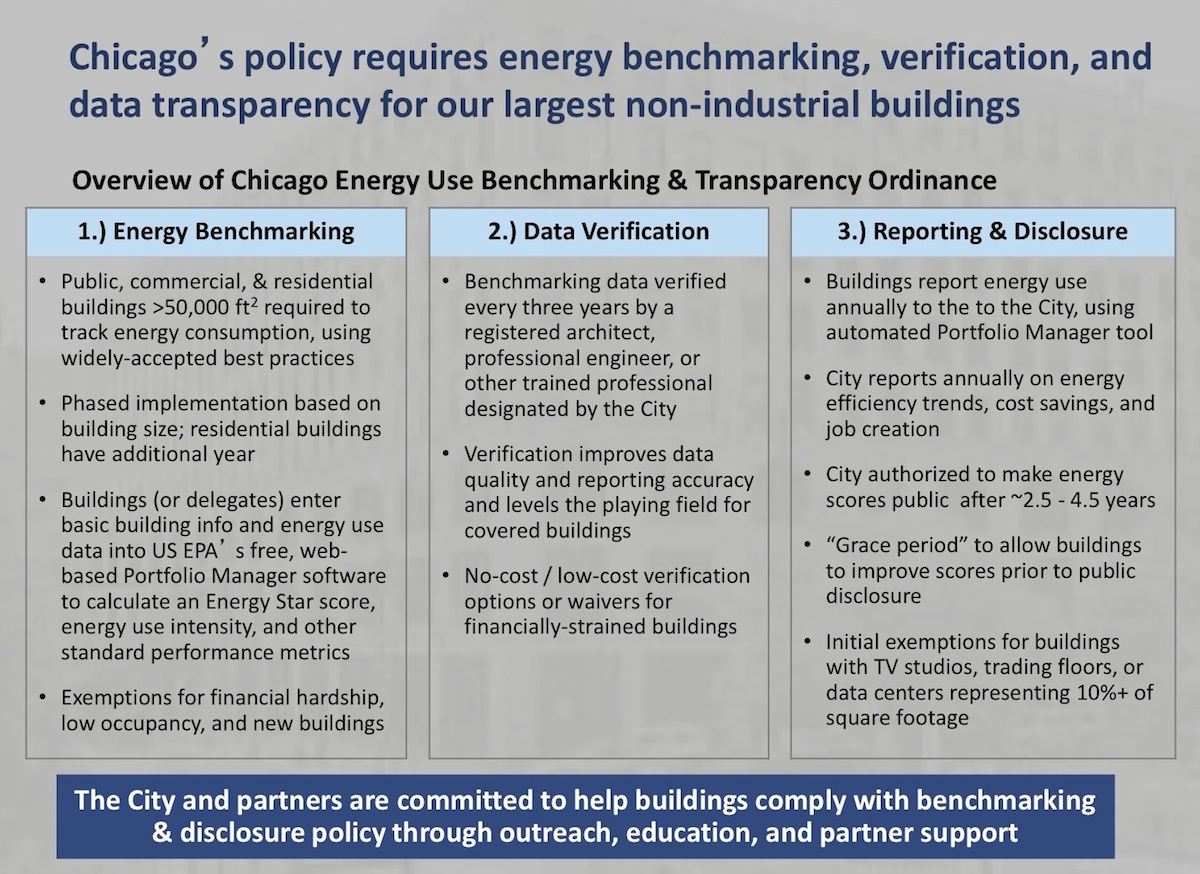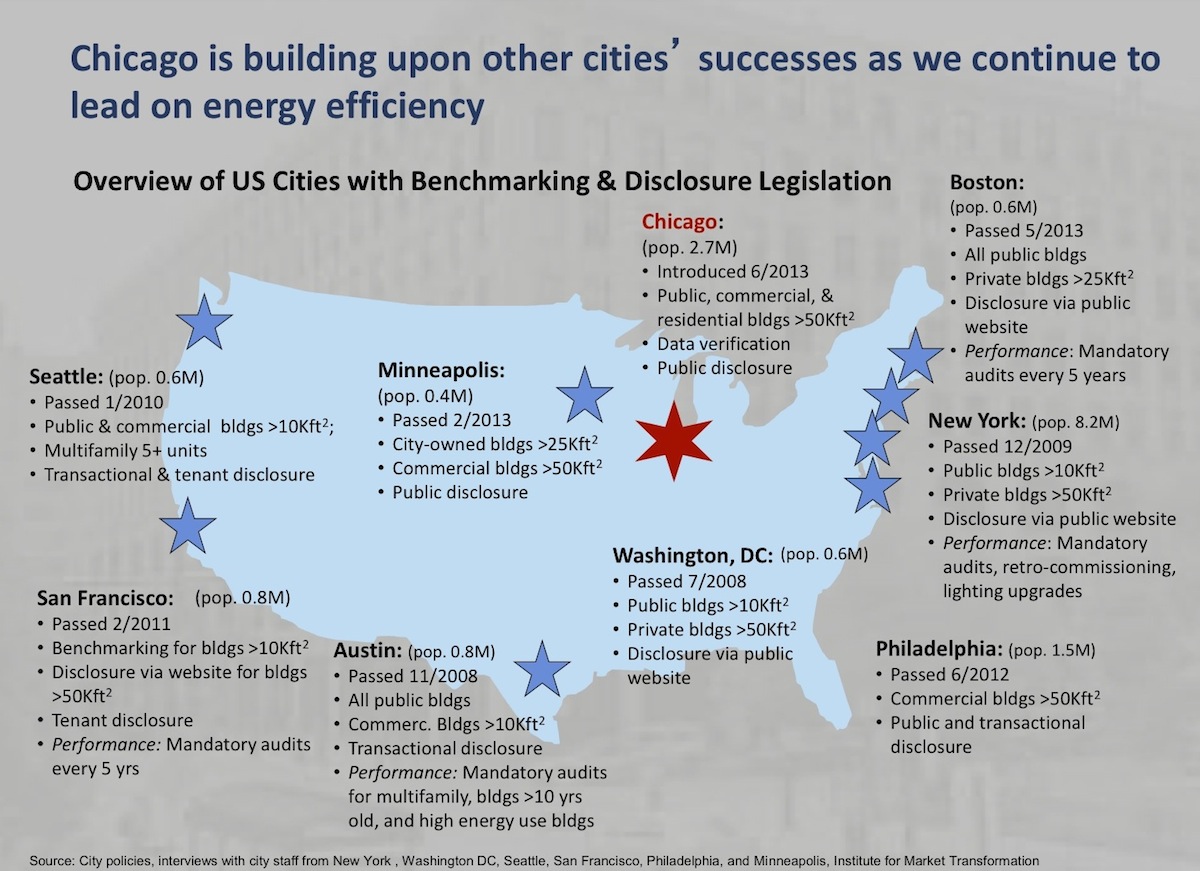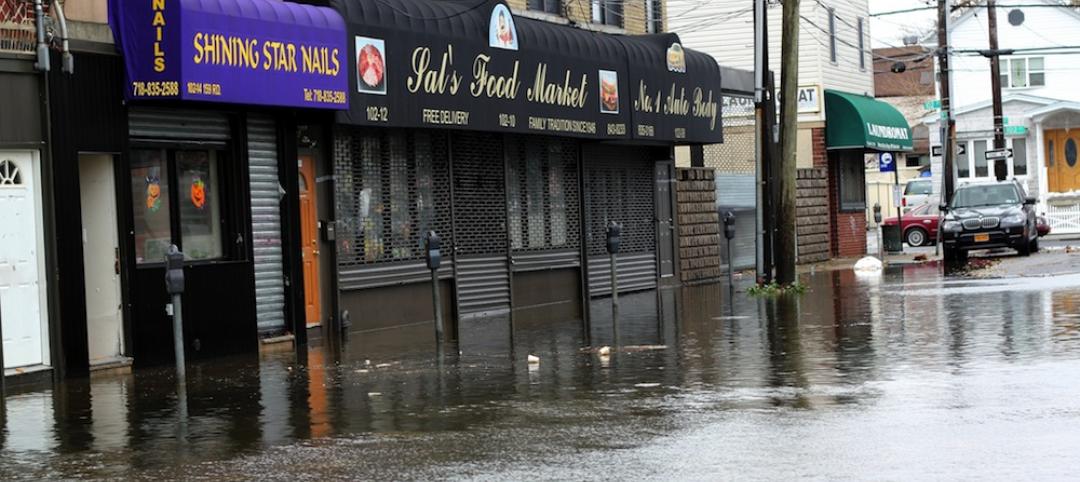The Windy City is the latest U.S. city to enact legislation that mandates building energy benchmarking and disclosure for owners of large commercial and residential buildings. The ordinance was introduced in June 2013 and passed city council vote on Wednesday.
In developing the Chicago Energy Use Benchmarking & Transparency Ordinance, city officials reached out to eight U.S. cities that have enacted similar benchmarking legislation and adopted the best elements of each program.
During a panel discussion at BD+C's BUILDINGChicago conference this week, Jamie Ponce, Chicago City Director of the C40 - Clinton Climate Initiative, outlined the elements that differentiate Chicago's benchmarking ordinance. The most unique element, said Ponce, is a rule that mandates the verification of building energy data every three years. The data must be checked and verified by a registered architect, professional engineer, or other trained professional designated by the city. Chicago will be the only city with such a mandate.
"We asked representatives from the eight other cities what they would add or do differently, and the overwhelming majority mentioned the need for data quality and accuracy," said Ponce. "They said they were getting some questionable data from building owners."
Causes range from errors in data entry to owners not fully considering all aspects of the building in calculating the energy performance. "It's helpful to have an additional data check," added Ponce. The city will offer low- and no-cost verification options for building owners who cannot afford third-party data verification services.
Here's a breakdown of Chicago's benchmarking ordinance (click image to enlarge):
Here's a comparison of the various U.S. city ordinances (click image to enlarge):
For more on Chicago's ordinance, click here.
Related Stories
Smart Buildings | Oct 26, 2020
World’s first smart building assessment and rating program released
The SPIRE Smart Building Program will help building owners and operators make better investment decisions, improve tenant satisfaction, and increase asset value.
Smart Buildings | Oct 1, 2020
Smart buildings stand on good data
The coming disruption of owning and operating a building and how to stay ahead through BIM.
AEC Tech | Jan 16, 2020
EC firms with a clear ‘digital roadmap’ should excel in 2020
Deloitte, in new report, lays out a risk mitigation strategy that relies on tech.
Urban Planning | Oct 20, 2016
Despite troubled development, Masdar City forges ahead
The detailed master plan for Phase 2 of Masdar City has been unveiled by CBT.
Smart Buildings | Feb 10, 2016
100 Resilient Cities to partner with Perkins Eastman
Perkins Eastman joins 100RC group of Platform Partners to offer resilience-building services to member cities.
Industry Research | Feb 8, 2016
Changing of the guard: Big cities giving way to newer, less expensive offerings
U-Haul truck rental costs are a good early predictor of migration trends in the U.S.
Resiliency | Jan 29, 2016
Section of New Orleans will try new approach to flood control
The city will turn to a retain and control storm water strategy.
BIM and Information Technology | Jan 27, 2016
Seeing double: Dassault Systèmes creating Virtual Singapore that mirrors the real world
The virtual city will be used to help predict the outcomes of and possible issues with various scenarios.
Smart Buildings | Dec 15, 2015
Property owners and developers challenge FEMA floodplain maps
Agency said to be open to revision requests.
Smart Buildings | Dec 7, 2015
AIA Baltimore holds rowhouse redesign competition
Teams competed to provide the best social and environmental design solutions for the city’s existing rowhouse stock.















